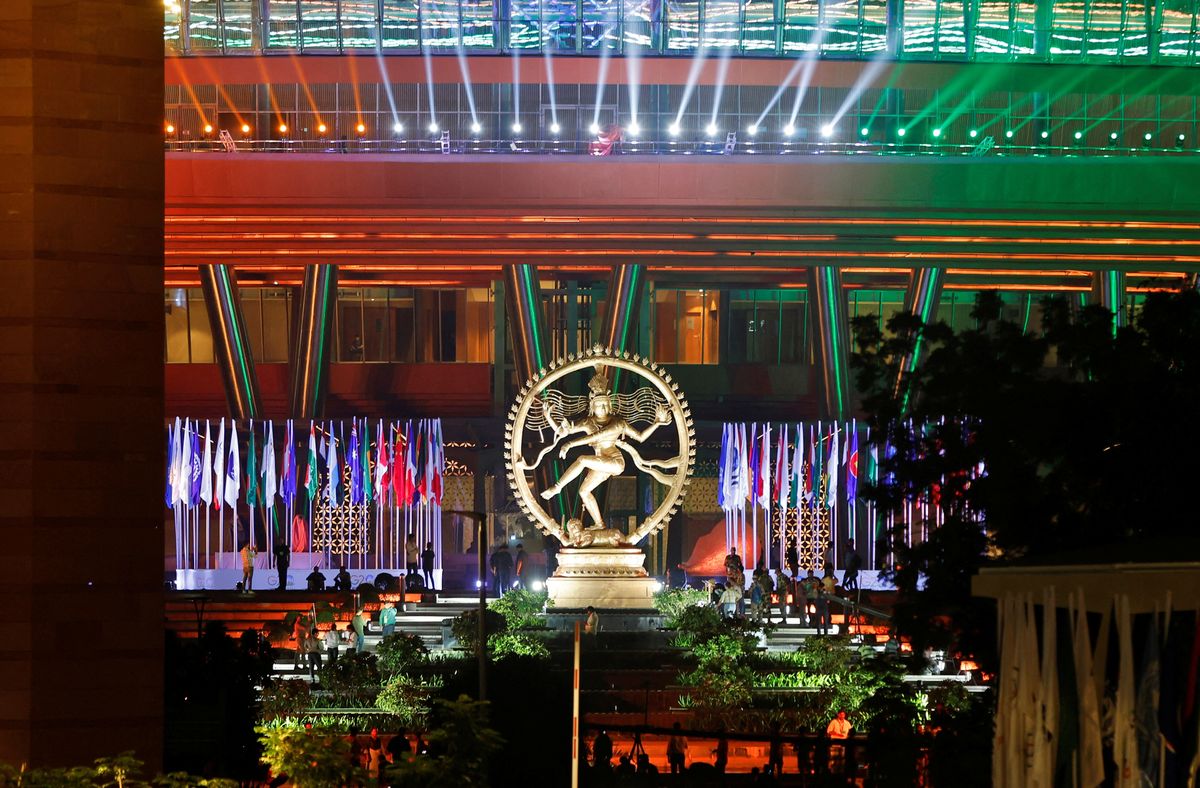Bharat vs. India – the name game dominating the G20 conversation
As India prepares to host the upcoming G20 summit this weekend, there's been buzz about a possible name change.

A few minutes every morning is all you need.
Stay up to date on the world's Headlines and Human Stories. It's fun, it's factual, it's fluff-free.
The backstory: In 1947, India was in the midst of bidding farewell to British colonial rule. At the time, the country had a bit of an identity crisis with three historical names on the books. "India," used by various cultures (including the British) and thought to come from Sanskrit, referring to the Indus River; "Hindustan," a name historically favored for northern and central India; and "Bharat," the Hindi word for India that also traced back to an ancient Sanskrit text.
In 1949, the country’s constitution was being drafted, and it had to pick a name. After some committee deliberation, the nation settled on both India and Bharat, and Hindustan didn't make the cut. The opening line of India's constitution says, "India, that is Bharat, shall be a union of states." At the time, some were angry over this decision, saying the name India had come from foreign exploiters. But today, both names are used, with India primarily used in English and Bharat in most local languages. Both are used on the country’s passports.
More recently: Since Prime Minister Narendra Modi took office in 2014, his government has been seen as promoting Hindu nationalism and the Hindi language while working to remove references to colonial and Mughal (the empire in charge before British colonial rule) history from India's narrative. It's worth noting that Modi's political party, the Bharatiya Janata Party (BJP), has been on a renaming spree, swapping out colonial-era names for towns and cities. Their argument is that India is a name imposed by the British and serves as a reminder of the colonial era.
The development: As India prepares to host the upcoming G20 summit this weekend, there's been buzz about a possible name change. President Droupadi Murmu was addressed as the "President of Bharat" in the official invitations for a G20 dinner. Adding fuel to the speculation, an English G20 booklet given to foreign delegates says that "Bharat is the official name of the country.” What's also turning heads is that Indian officials at the G20 summit will be sporting tags that read "Bharat – official." There’s a special session of Parliament planned for later this month, and some are saying a name-change proposal might be on the agenda. But nothing’s been confirmed yet.
Many are in favor of using Bharat primarily, saying it’s progress toward overcoming a “colonial mentality.” But some are opposed to scrapping the name India entirely, noting that it’s internationally recognized and the country should continue to keep both names on the books.
Key comments:
“Republic of Bharat – happy and proud that our civilisation is marching ahead boldly,” said Himanta Biswa Sarma, the BJP’s chief minister of Assam.
“While there is no constitutional objection to calling India ‘Bharat’, which is one of the country’s two official names, I hope the government will not be so foolish as to completely dispense with ‘India’, which has incalculable brand value built up over centuries. We should continue to use both words rather than relinquish our claim to a name redolent of history, a name that is recognised around the world,” said Shashi Tharoor, a politician with the main opposition Congress party.
“The hosting of the G20 summit is a responsibility of the entire country,” said Prime Minister Narendra Modi in a speech last month. “We need to show the world that Delhi can handle this responsibility without any glitches.”




Comments ()